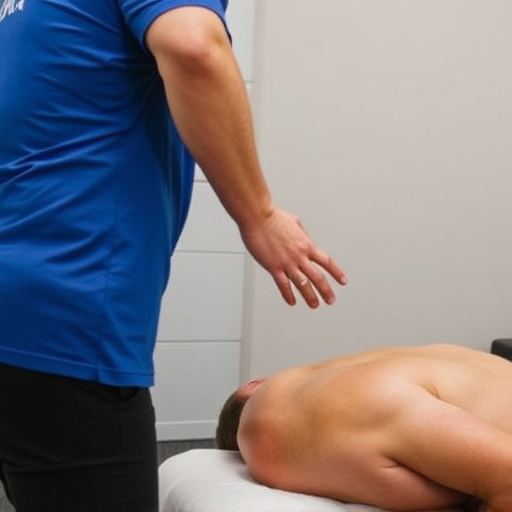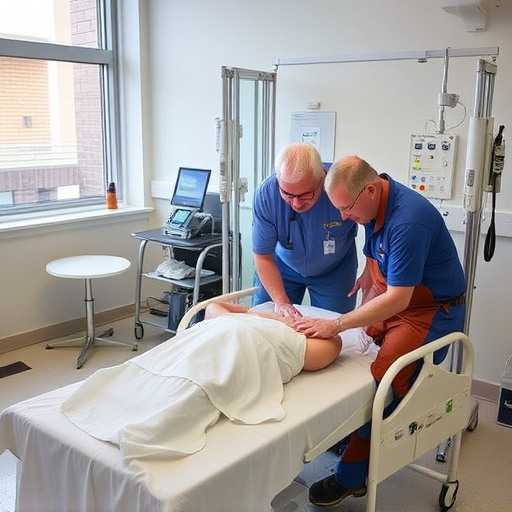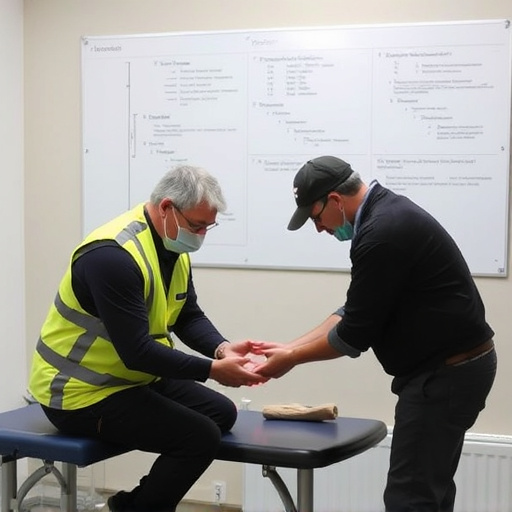Repetitive strain injury (RSI) is a common work-related condition caused by repetitive tasks leading to muscle, tendon, and nerve strain. Poor posture, incorrect movement, and repeated motions contribute to symptoms like pain, numbness, and tingling. Non-pharmaceutical approaches including rest, physical therapy, and ergonomic changes provide effective short-term relief and prevent chronic pain. Topical medications with menthol, camphor, or capsaicin offer targeted pain reduction for faster recovery and improved mobility.
Repetitive Strain Injury (RSI) is a common condition affecting millions, caused by repeated or forceful activities. This article explores effective strategies to alleviate RSI symptoms and restore comfort. We delve into understanding the root causes and recognizing telltale signs of RSI. Additionally, non-pharmaceutical approaches are discussed, emphasizing exercise and ergonomic adjustments. For targeted relief, we examine top-performing topical medications. By considering these options, individuals can navigate their RSI journey with informed steps towards recovery.
- Understanding Repetitive Strain Injury: Causes and Symptoms
- Non-Pharmaceutical Approaches for RSI Relief
- Exploring Topical Medications for Targeted Relief
Understanding Repetitive Strain Injury: Causes and Symptoms

Repetitive Strain Injury (RSI) is a common condition affecting millions worldwide, particularly among those whose work involves prolonged repetitive tasks, such as typing, data entry, or manual labor. It’s characterized by discomfort and pain in the upper limbs, often radiating from the wrists to the fingers, resulting from excessive strain on muscles, tendons, and nerves.
The primary causes of RSI include improper posture, incorrect body mechanics during work tasks, and repetitive motions. Over time, these factors can lead to inflammation, tendonitis, carpal tunnel syndrome, and other related conditions. Symptoms typically manifest as pain, numbness, or tingling in the affected areas. Rest often provides temporary relief, but the condition may worsen if left unaddressed, developing into chronic pain and disability. Seeking professional help from a personal injury chiropractic specialist or functional rehabilitation therapist can be crucial in managing RSI effectively and finding lasting relief, alongside appropriate medication and lifestyle adjustments.
Non-Pharmaceutical Approaches for RSI Relief

Non-Pharmaceutical approaches play a significant role in managing and alleviating symptoms of repetitive strain injury (RSI). Apart from medications, there are several effective strategies to ease discomfort and promote healing. One crucial method is rest and modification of activities causing strain. This involves identifying and avoiding repetitive motions that exacerbate the condition, allowing affected muscles and tissues time to recover.
Additionally, physical therapy exercises targeted at strengthening muscles, improving flexibility, and enhancing joint stability can offer substantial RSI relief. Ergonomic adjustments in work or study spaces, such as proper posture support, wrist supports, and adjustable desks, are also beneficial. These non-pharmaceutical interventions focus on preventing further damage, reducing inflammation, and restoring function, often providing long-lasting chronic pain relief and enhancing post-injury care outcomes.
Exploring Topical Medications for Targeted Relief

Repetitive strain injury (RSI) can cause localized pain and discomfort, making targeted relief crucial for effective management. One of the most direct approaches to achieving this is through the use of topical medications. These creams and ointments contain active ingredients that can penetrate the skin to deliver therapeutic benefits directly to affected muscles, tendons, and joints.
Topical medications offer several advantages in RSI care, including their ability to provide localized relief without the systemic side effects associated with oral medications. They are particularly beneficial for individuals undergoing functional rehabilitation or looking for mobility improvement after a car accident injury. Key active ingredients like menthol, camphor, and capsaicin can reduce pain, inflammation, and muscle spasms, facilitating faster recovery and improved movement.
Repetitive strain injury (RSI) is a common yet debilitating condition that can significantly impact daily life. Through a combination of understanding RSI, employing non-pharmaceutical approaches, and leveraging topical medications, individuals can effectively manage symptoms and promote healing. By adopting these strategies, those suffering from RSI can regain control of their lives and find lasting relief.














